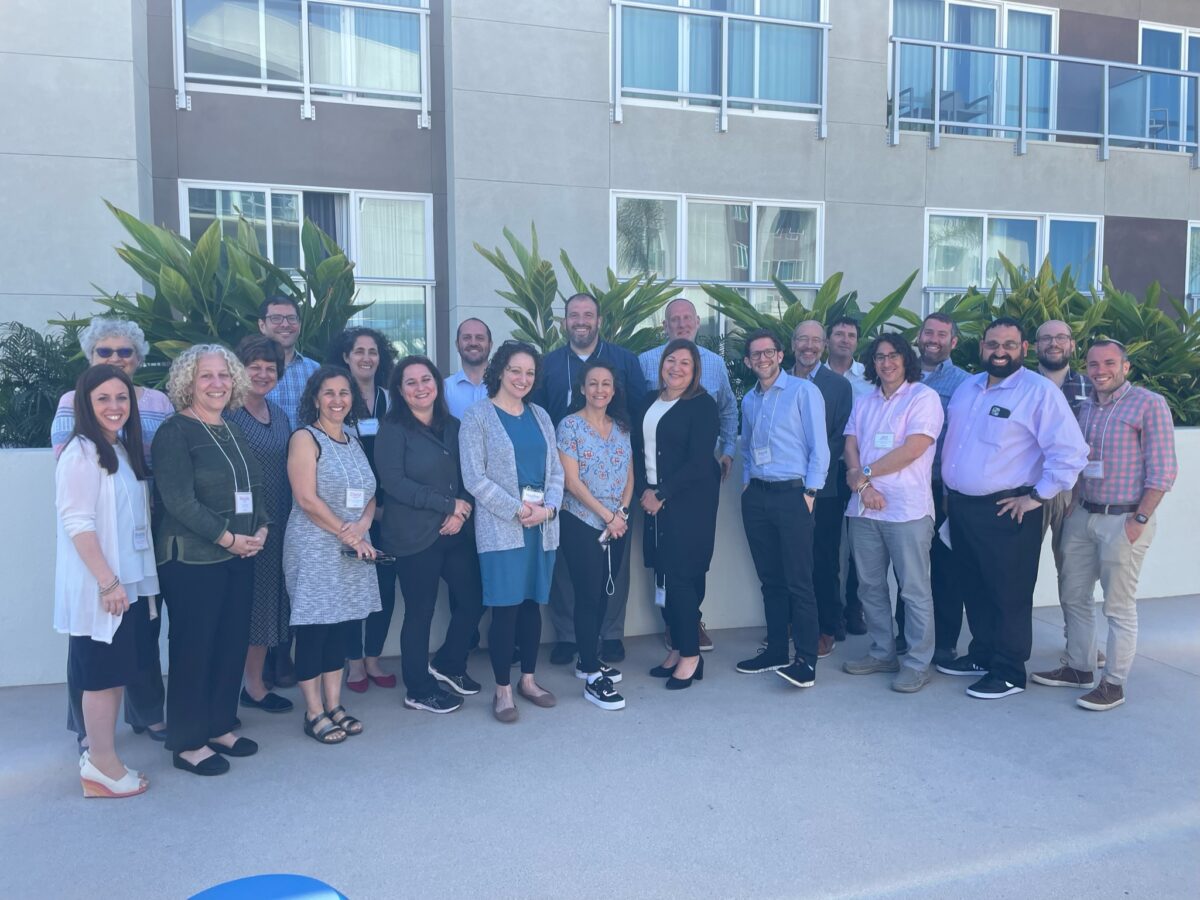The 2021-2022 school year is shaping up to be a year where we have a rare opportunity to shine a light on one of the most important determinants of a successful Jewish day school…governance.
You may recall (and you may have even attended) the “Governance Town Hall” we held back in November. That was an opportunity for parents in our school to better understand what governance at OJCS presently looks like, to be introduced/reminded of who our lay leaders are, and to ask questions. I find it critical that parents and members of the community understand how private schools are best run and to provide regular opportunities to share how we are measuring up. It was wonderful to share those thoughts with parents and to receive critical feedback. It is something we plan to do on a regular basis.
This week, I had another opportunity to be reminded of the impact governance has on schools when I helped facilitate the Day School Leadership Training Institute (DSLTI) “Governance Retreat” in Los Angeles. [Yes, the timing with the first days of our school’s pivot to optional masking were way less than ideal.] You may recall that I posted last July about my participation on the faculty of DSLTI and what I hoped it would contribute to my work here at OJCS. I won’t repeat those ideas here, but needless to say, I returned to OJCS with both new ideas and a newfound appreciation for what our board and lay leaders have accomplished over the last four and a half years.
I know we tend to focus our energy on the most obvious stakeholders of schooling – students, parents and teachers. When I describe the school’s stakeholders, I try to widen that circle to include volunteers, community and donors. And technically the board checks many of those boxes – our board are, of course, all volunteers and all contribute materially to the school. Many are or have been parents and many are or have been leaders in other Jewish community organizations, not to mention the wider Ottawa community. But being on the board of a Jewish day school is quite the unique experience. (I also think that because there is sometimes a little confusion and/or unnecessary mystery about how people find their way onto the school’s board that there is a bit of discomfort which renders the topic a bit of a “non-discussible”.) What I can tell you from three headships, three years of working with over 50 Jewish day schools during my time heading up Schechter and working at Prizmah, and my current work with DSLTI, is that healthy governance matters and it matters now more than ever.
When I was hired at OJCS just about five years ago, I knew who my first two board chairs were going to be and had a strong sense of who the third was going to be – which in my experience was highly unusual and welcome first foreshadowings of stability. These three extraordinary leaders – Michael Polowin, Leila Ages and Lorne Segal – have been my partners on each and every step we have taken together to move our school from fragility to stability. Being a head of school is a lonely occupation (partially why programs like DSLTI exist) and the relationship between head and chair is arguably the single most important one in the entire school ecosystem. The chair is there to support, to advise, to thought-partner, to hold accountable, to supervise and so much more. Whether I need a hug or a kick in the pants, my board chair is there. They spend untold hours on their board responsibilities, frequently on top of full days of work and other volunteerism. However often I thank them, it is surely not enough.
Chairs and boards are the third leg of a stool without which a school would collapse. The board shapes mission, provides resources, performs fiscal oversight and supervises the head of school. There is no school administration, no teachers, no curriculum, no program – there is no what to do, and no one to teach our students without the work of the board. To put it most simply, the school concerns itself with today and the board ensures that there will be a tomorrow. There has never been a more important and challenging time to serve on the board of a Jewish school. I am grateful to our current board for all they have done and all they will do to secure the future of OJCS and, through it, contribute to securing the future of Jewish Ottawa.
Serving on a board is a kind of calling…if you hear that call and feel moved to respond, I hope you let us know. Our children can never have too much support.

